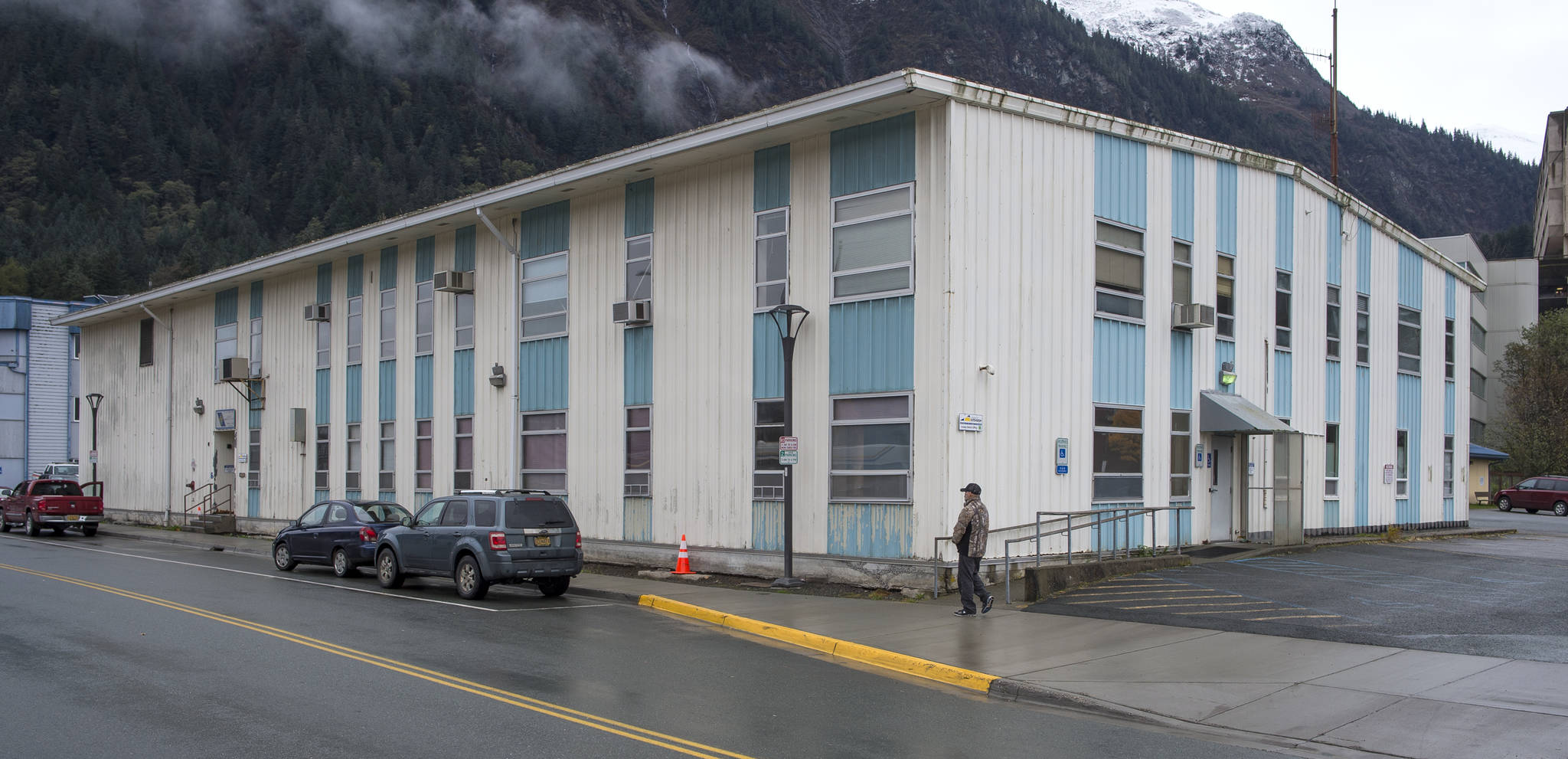The City and Borough of Juneau is aiming to get a winter warming center up and running, and the Assembly is also setting its sights on a longer-term solution.
City officials are looking for the warming center, which will aim to provide a warm place to sleep for up to 25 individuals, to get off the ground by Nov. 15. As of now, the top choice for the warming center is a portion of the Public Safety Building on Whittier Street, City Manager Rorie Watt said.
Another discussed location was the downtown transit center, but Watt said the fact that it has a day function would intersect with the people sleeping there. The space at the Public Safety Building has no other use. The Assembly will decide at its Nov. 6 meeting about whether to appropriate city funds (an estimated $75,000) to the project.
“We are assuming that the Assembly is gonna appropriate the money and trying to get ahead of the appropriation and lining up somewhere that worked and that would be possible and would be controllable for this winter,” Watt said, “and the Public Safety Building, I think, meets those criteria.”
The Alaska Mental Health Trust owns the building, and Watt said officials from the trust have been in favor of the city using a portion of the building. Watt said the portion would likely be the part of it that faces the Juneau Arts and Culture Center.
At an Assembly meeting in September, CBJ Housing Coordinator Scott Ciambor estimated that opening a warming center for 100 days this winter would cost around $75,000. This money would cover staffing, liability and rental costs. CBJ Finance Director Bob Bartholomew said at that meeting that the city can find money in tobacco tax revenue to fund the project.
The Juneau Community Foundation has already received $4,000 in donations for a warming center, JCF Executive Director Amy Skilbred said. EFFY Jewelry and Holland America Group/Princess Cruises have made the donations, she said.
The University of Alaska Fairbanks Cooperative Extension is currently the only occupant of the Public Safety Building, with other parts of it standing vacant. Sarah Lewis, the youth, family & community development faculty for the Cooperative Extension, said city staff members reached out to them last week about the possibility of the warming center being there.
Lewis said she and her coworkers are open to the idea of the warming center, but were unaware that the city was planning on getting it started so soon. There are only a couple bathrooms in the building, she said, and it’s unclear how security would work in the building. The fact that the hours of the warming center wouldn’t overlap with the Cooperative Extension’s business hours was encouraging, she said, and they’re willing to work with the city to help get the project off the ground.
Future priorities
At that September meeting, the Assembly Task Force on Homelessness made its recommendations to the Assembly, including its top long-term priority.
That priority, the task force believed, was for the city to invest in scattered-site supportive housing. This program would work with local landlords and social services to get homeless people into housing throughout town.
Funding 10 of these units would cost about $185,000 during the first year, according to the task force’s research. The task force recommended that the city approve long-term funding for this endeavor. Cities throughout the country including Phoenix, Chicago, Louisville and Philadelphia, have utilized the approach.
The Committee of the Whole on Monday voted unanimously to look at the scattered-site solution down the road, but to save deeper conversations about it until the city fills its open Housing and Homeless Services Coordinator position. This person would coordinate local services to better use their resources to address the homeless issue in town.
The Juneau Coalition on Housing and Homelessness is also making progress toward supplying scattered-site supported housing. A Housing and Urban Development Continuum of Care grant could fund six scattered-site units, Glory Hole Director Mariya Lovishchuk said at Monday’s meeting.
The task force suggested not pursuing a winter campground because it’s “unlikely to assist the most in need,” and that it’s not a long-term fix. The winter warming center is also a short-term fix, the task force and JCHH acknowledged, but it’s the only service the city can get up and running before Nov. 15.
Juneau has the highest rate of homelessness of any city in the state. Even with the new Housing First facility taking 32 people in off the streets, there will be many people without a place to sleep this winter in Juneau.
A Point in Time Count released in April of this year found 215 people were sleeping either on the street or in shelters in Juneau. One hundred of those people were in transitional housing, 59 were unsheltered and 56 were in an emergency shelter.
The Housing First facility is almost full, Watt said at Monday’s meeting, and at least anecdotally, it appears that it’s starting to have positive effects downtown.
“I wouldn’t be too quick to jump to conclusions about whether or not Housing First is a cure to all our issues,” Watt said, “but at least preliminarily, I think (there’s been) some progress.”
• Contact reporter Alex McCarthy at 523-2271 or alex.mccarthy@juneauempire.com.

